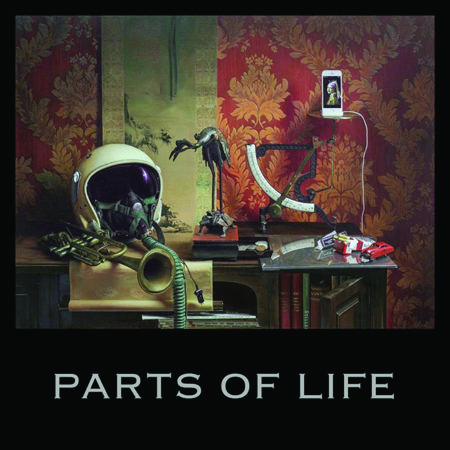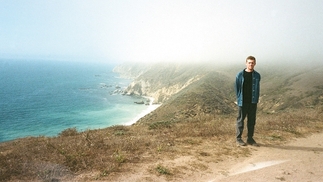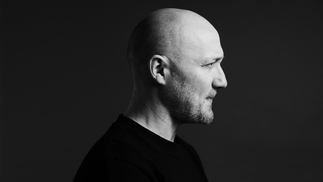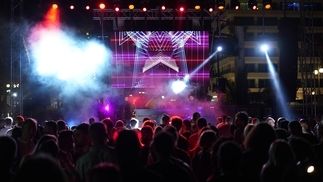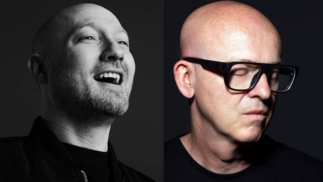Paul Kalkbrenner: Techno's reluctant superstar
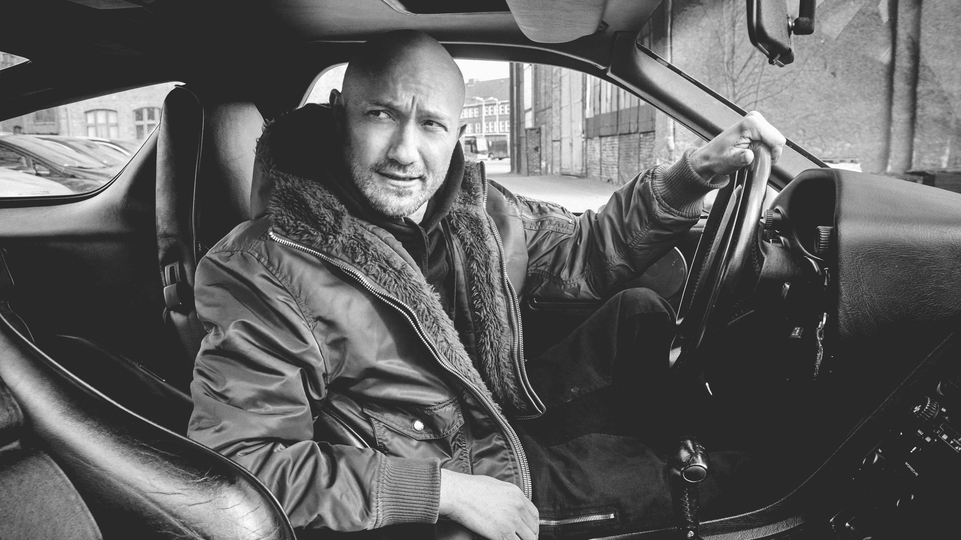
Berlin’s techno superstar Paul Kalkbrenner is back with a new LP that pays tribute to the city’s halcyon early rave days. We find out more about how he avoids the limelight, his obsessive work ethic and his love of early dance sounds...
Words: STEPHEN FLYNN
Pics: OLAF HEINE
Berlin is a city that’s always maintained an uneasy relationship with celebrity culture. It was here that David Bowie went to get away from the glare of the British press, a move that would have a profound creative effect both on his music and his personality. Its oft-brutalist architecture, dingy clubs, damp studios and derelict warehouse spaces might boast their own appeal, but they’re a far cry from the Hollywood Hills. While Berlin is a city that’s embraced techno like nowhere else on earth, it’s also not the sort of place that fosters hometown superstars. In spite of this, the German capital is home to a producer who’s most definitely deserving of this description. It’s a tag he’s reluctantly embraced, but when it comes to techno producers who have successfully crossed into the mainstream, few of those in the contemporary domain can touch Paul Kalkbrenner. The fact that he’s done so on his own terms, without compromising his sound, makes his story all the more compelling.
Born in Leipzig in East Germany in 1977, Kalkbrenner’s parents moved their young family to Berlin when Paul was still a toddler. He started playing trumpet at eight-years- old, and would later go on to study music theory at school. Barely a teenager by the time Germany was re-unified, the coming together of East and West would open up a new level of opportunity for Kalkbrenner and his peers. The country’s re-unification and its accompanying techno soundtrack is a tale that’s been recounted many times over, but in the case of artists such as Kalkbrenner, it’s also one that can’t be emphasised enough. To this day, his is a story that’s indebted to Germany’s re-unification, and in many ways his success speaks volumes for the entire process. In 2014, Kalkbrenner was even invited to play a special gig at the historic Brandenburg Gate to mark the occasion’s 25th anniversary. His was something of an obvious inclusion: after all, few other artists enjoy the sort of reciprocal relationship with their home city as Paul Kalkbrenner does with Berlin.
MAKING MOVIES
Though Kalkbrenner owes an enormous debt of gratitude to the wall’s crumbling, it’s a fictional Berlin story that helped catapult him to stardom. Following the release of his ‘Self’ LP in 2004, Kalkbrenner was approached by Hannes Stöhr, a German director and long-time supporter of his work, who proposed Kalkbrenner produce a soundtrack for a script he’d written around a fictional, Berlin-based DJ/producer by the name of Ickarus. Aside from the soundtrack, Stöhr also saw Kalkbrenner as the perfect person to bring his story to life. Which, of course, is exactly what happened. Not only did Kalkbrenner deliver a virtuoso performance as Ickarus, but he also produced a dazzling soundtrack that encapsulated all that’s great and often terrifying about Berlin’s party scene. Released in 2008, Berlin Calling became an instant cult classic. Spurred on by the aforementioned soundtrack, it quickly set records galore, with Kalkbrenner’s track ‘Sky & Sand’ (produced in tandem with his brother, Fritz) spending a record amount of time in the German charts, and the movie itself spending 145 consecutive weeks at Berlin’s Kino Central cinema.
Although there is a sort of art-imitating-life, Spinal Tap-esque vibe to Kalkbrenner’s story, anyone who thinks Ickarus’ unfortunate plight is one that mirrors his own personal life is very much mistaken. Indeed, contrast is a theme that runs deep with Kalkbrenner: not only is he a live act renowned for portraying a DJ, he’s also very much a musician more than he is an actor. A superstar with a penchant for predominantly ‘underground’ sounds, unlike Ickaurus, he’d rather spend his free time with his young family as opposed to cavorting around Berlin nightclubs. When DJ Mag dials him up in Berlin, he apologises profusely, asking if he can call us back in 20 minutes before explaining that he’s busy looking after his daughter. When we do chat, we find Paul Kalkbrenner in confident mood.
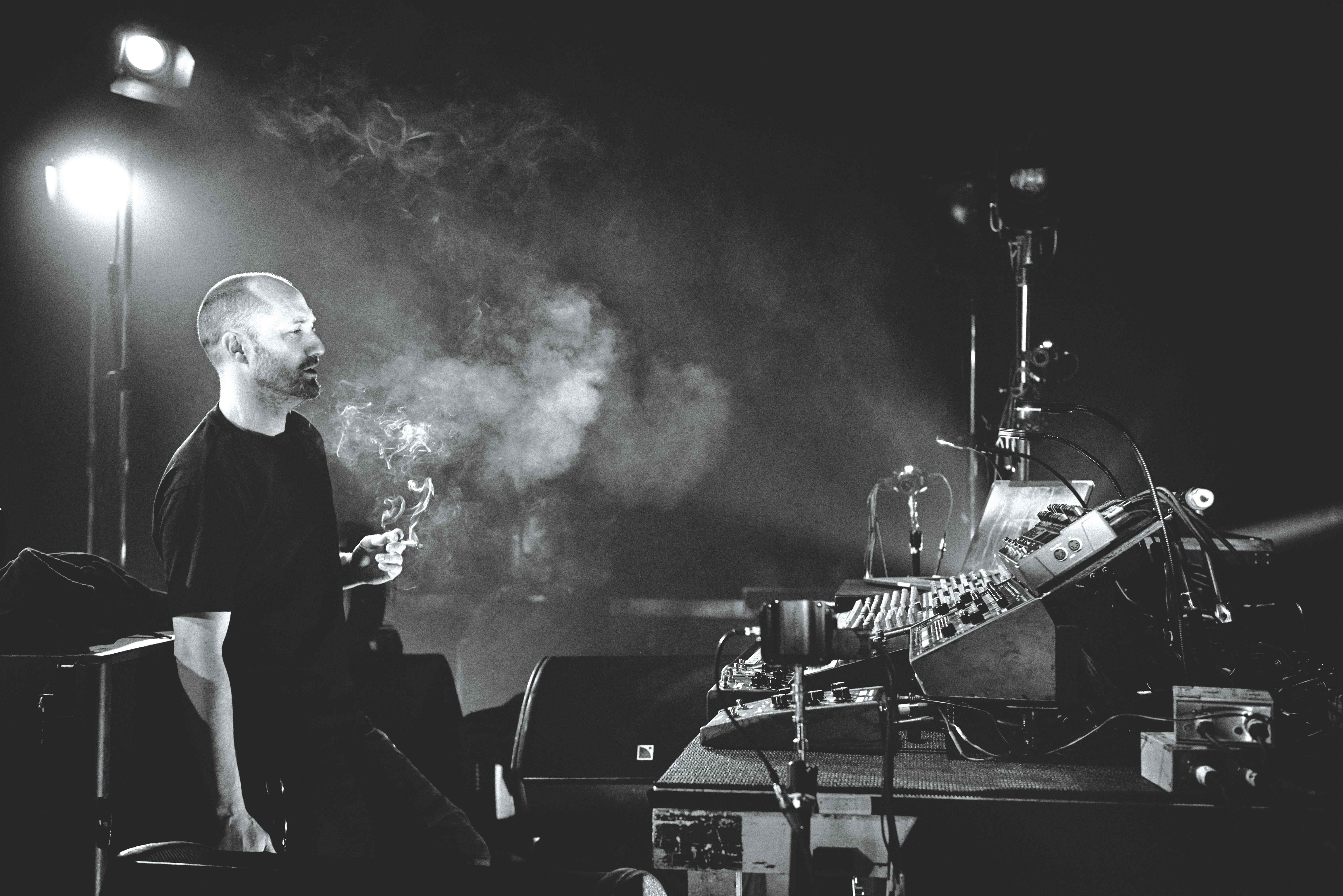
EVOLUTION
The reason behind our call is Kalkbrenner’s eighth studio album, ‘Parts Of Life’. An expansive body of work that sees the Berliner return to his trademark, cinematic sound, the release touches on various moods throughout, from the more accessible techno of ‘Part Three’ and ‘Part Six’, to the Berghain-friendly ‘Part Four’. An LP full of surprises throughout (more on that later), ‘Parts Of Life’ is Kalkbrenner’s second album with Sony, but refreshingly, also one that’s mostly unaffected by its signing to a major record label. Now that the album’s done and dusted and the man himself is about to embark on another live tour, what does he make of the finished article?
“I feel it’s the best album I’ve ever produced,” he tells us. “For me, I don’t see the point in putting out an album unless you feel it’s better than your last, and with ‘Parts Of Life’ I feel I’ve matured a lot [as a producer]”. Considering he’s been making music since his early teens, it’s quite a statement, but then Kalkbrenner’s productions have always been more concerned with epic, grandiose sounds as opposed to sonic intricacies. In other words, confidence is an integral part of his production process, and whereas his last album, (2015’s ‘7’), was mostly concerned with emotion, ‘Parts Of Life’ is a more assertive sounding, club-focused record. Not that Kalkbrenner’s been looking to modern day venues for inspiration. “The last time I went out clubbing was about a decade ago, when I went to Berghain,” he laughs down the line. “These days, I spend enough time performing and on stage to not need to get my clubbing kicks elsewhere.”
OK, so clubs are out, but perhaps modern electronic music played a significant role in the shaping of the new album? Not so, explains Kalkbrenner, who flat out responds, “absolutely none” when we ask him what contemporary artists influenced the LP. What did play a key role in influencing the album is Back To The Future, a mixtape project of Kalkbrenner’s that saw him turn his attention to over 60 tracks that he felt represented the historical rise of techno in his home city from 1987 to 1993. A move that was very much indicative of the producer going back to his musical roots, Back To The Future saw Kalkbrenner rip, edit and compile a host of classic tracks before he presented them in his own inimitable way; first via a series of mixtapes, and secondly, via a special tour that saw him revert to more intimate spaces. It’s clear that the whole process invigorated him musically, with the man himself citing Back To The Future as a “massive influence” on the new album.
DRIVEN
A famously prolfic producer, Kalkbrenner turned ‘Parts Of Life’ around in little more than a few months, beginning in November 2017 and finishing in February of this year. The album format has long been his forte, and unlike most electronic music producers, he tends to shy away from releasing EPs. “I feel albums make a bigger artistic statement,” he tells DJ Mag. “Besides this, I don’t waste time when I’m in the studio. Once I’m in the zone, I’ll keep working, and with ‘Parts Of Life’ I barely took a break. I even worked 31st December straight through to 1st January, and I remember looking outside at one point and seeing all these ravers on their way home from a New Year’s Eve party... while I was stuck inside!”
For Kalkbrenner, the method by which he approaches the production process is of fundamental importance. “I could never produce tracks on Ableton while I’m travelling, and I have to be in a certain space when I’m producing.” When we question if his personal life dictates his music, he responds that it’s actually the music-making process that dictates his everyday life, which goes some way to explaining Kalkbrenner’s obsessive approach to his work. Nonetheless, there can be little doubting that his everyday life has irrevocably changed since his East Berlin upbringing.
In spite of the occasional attention, Kalkbrenner maintains that he still finds Berlin a pretty relaxed place to live. “I was coming out of the swimming pool recently, and these two teenagers came over for a chat and a photo, which is fine, but something I still find a bit stange. I also make a conscious effort not to appear in crappy magazines or go to TV awards or on game shows. So my fame remains the same in Germany. Basically, you won’t be catching me at the German Grammys or somewhere I’d get recognised, such as [famous Berlin nightclub] Watergate”. When we put it to Kalkbrenner that he might like to try living elsewhere, he can hardly contain himself at the very suggestion. “Prague or Switzerland would be nice, but the more I think about it, the more I realise I’ll never leave.”
The longer we chat to Kalkbrenner, the more he strikes us as a refreshingly grounded individual, and someone who possesses an ambivalent attitude toward the trappings of wealth and fame. This is significant, not least because of how it affects his music, but also because he’s someone who seemed to stumble across fame, rather than an individual who strived to be recognised outside of a core group of techno enthusiasts.
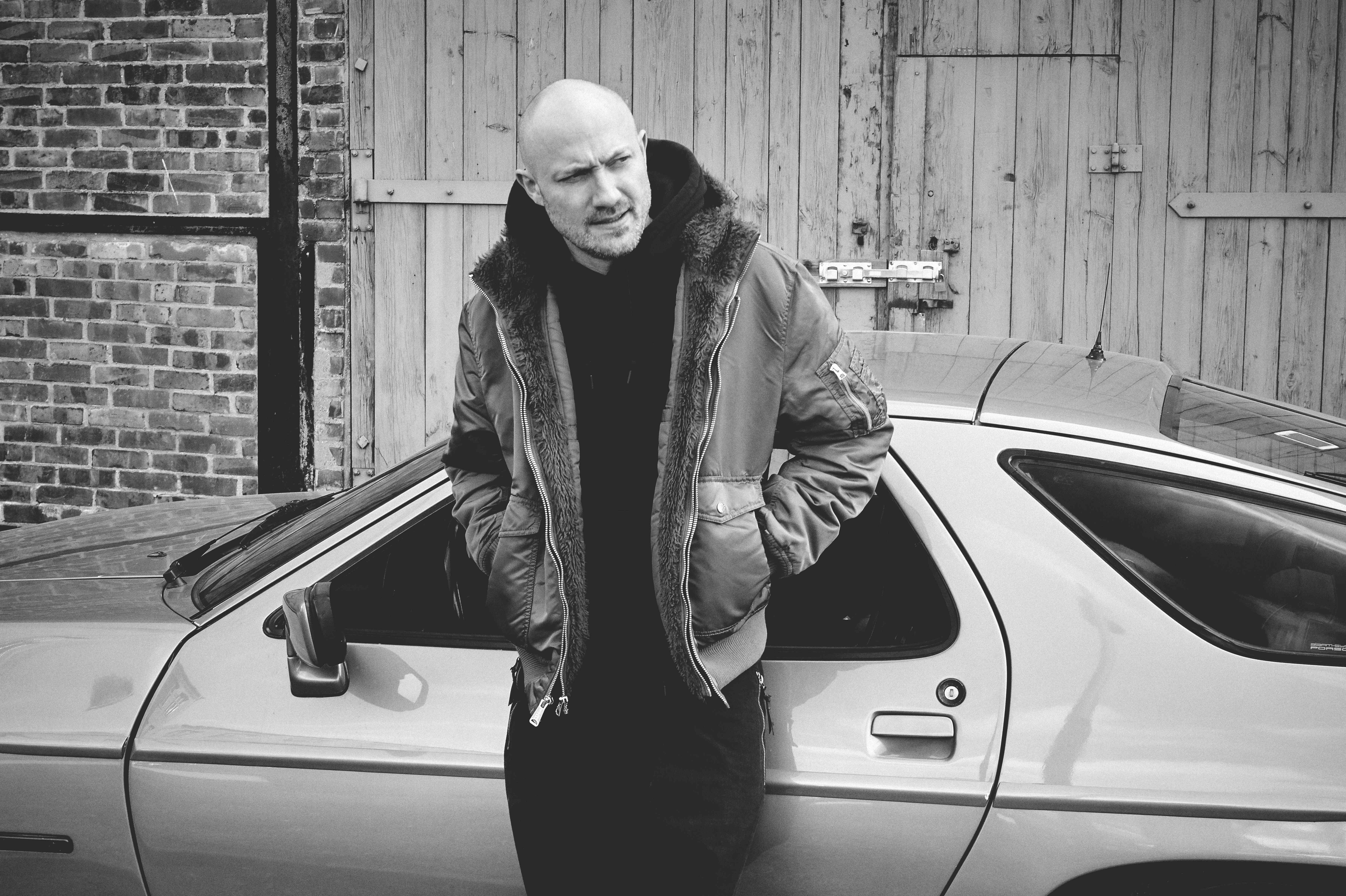
Staying humble is clearly of prime importance (Kalkbrenner previously described his character in Berlin Calling, Ickaurus, as: “someone I don’t ever want to become”), and it’s another theme that courses throughout ‘Parts Of Life’, a record he refers to as his “most personal and revealing album yet”. Aside from the nostalgic vibes stirred up by Back To The Future, the album is also very much a family affair, with Kalkbrenner’s uncle, Paul Eisel, contributing to the artwork, and his young daughter and his wife clearly lending his work a new perspective.
STORY TELLING
There are also a number of intriguing stories that manage to weave their way into the fabric of the album. “More than 20 years ago I had a mini studio with these Roland s750 samplers,” says Kalkbrenner. “So a while back we contacted Roland to see if they could convert the old files I had saved on there, but unfortunately they told us they couldn’t. Anyway, eventually my manager found this small data recovery centre in Berlin that was able to rescue them. So ‘Parts Of Life’ features a bunch of sounds from sample CDs from my work in the early ’90s, that make up a huge backbone [of the album].”
If that story gives the album a sort of autobiographical flourish, the following one only compounds the feeling that ‘Parts Of Life’ is a deeply personal project. “Actually, I’ve been looking for someone from ‘Part Six’, the second last track from the album!” he tells us. “There’s this guy who’s involved, but I met him only once. He was part of the Mayday spirit and maybe 15 or 16 years ago, he came up to my apartment for like one hour and sang this line. I recorded it and remember thinking it was brilliant at the time, but I only remembered it after I came across it after all these years on an old hard drive. So if he’s reading this and remembers being in my apartment all those years ago, please get in touch!”
Chatting to Kalkbrenner, it’s clear he’s a man in good form and someone who’s pretty happy with his lot, and regardless of him insisting it’s the other way around, we can’t escape the feeling that his contentment has played a significant impact on his latest piece of work. With spring having finally arrived in Berlin and with another busy summer firmly in his sights, Kalkbrenner tells us he’s really looking forward to introducing fans to his new show, as well as the not-so-insignificant matter of the forthcoming World Cup. A football obsessive, Kalkbrenner might be a passionate music lover, but his passion for the beautiful game is another that runs deep. During the course of our hour-long conversation, he’s rarely as animated as he is when he’s discussing Jürgen Klopp’s Liverpool or Germany’s World Cup chances. As for the English team? “Well,” he laughs, “they’ll probably go down fighting... before losing to Germany on penalties, who I expect to win the tournament.”
As we stated earlier on, Paul Kalkbrenner truly is in confident form. With his brilliant new album, an accompanying live tour and the prospect of another World Cup win to come, he has every reason to be. All things considered, 2018 could yet prove another monumental year for Berlin’s reluctant techno superstar.
Parts Of Life’ is out now on Columbia.
